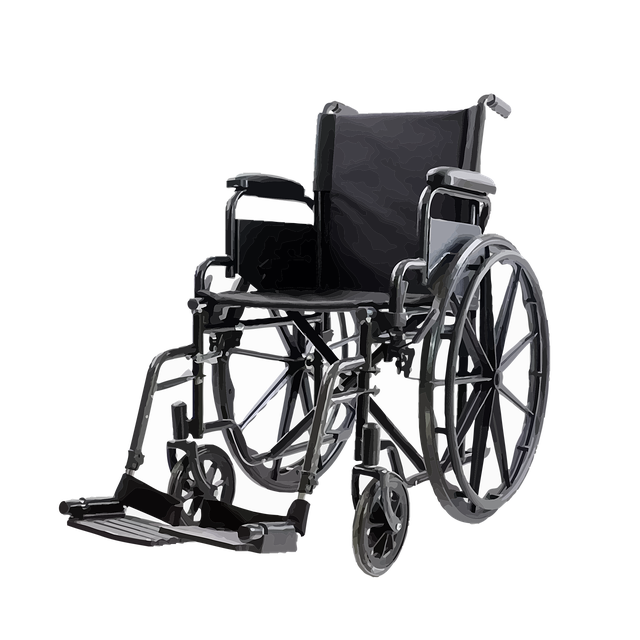Regenerative therapies are transforming healthcare by harnessing the body's natural healing capabilities with advanced biological treatments, now commonly applied in hospitals and specialized clinics to treat a variety of chronic injuries and degenerative diseases. These therapies, especially those utilizing stem cells, show great promise in regenerating damaged tissues and organs, often complemented by traditional rehabilitative practices like physical therapy. Hospitals and clinics are at the forefront of employing these treatments, leveraging clinical trials to rigorously evaluate their impact on patient health outcomes, ensuring safety, efficacy, and long-term benefits before they become standard practice. The integration of regenerative therapies into healthcare is marked by a shift towards personalized medicine, with treatments tailored to individual patients' needs, supported by advanced diagnostic tools and technologies for optimal outcomes. Multidisciplinary teams within hospitals and clinics are crucial, bringing together medical doctors, therapists, researchers, and support staff to address every aspect of a patient's condition comprehensively. The use of cutting-edge imaging technologies combined with biomarker analysis further enhances the precision and effectiveness of these treatments, allowing for real-time visualization and data-driven decision-making. Regulatory bodies like the FDA play a key role in overseeing safety and efficacy through comprehensive testing and monitoring, while ethical considerations ensure patient autonomy and equitable access to these therapies. The responsible application of regenerative treatments is facilitated by stringent guidelines for clinical trials, approval processes, and ongoing surveillance, making hospitals and clinics pivotal in advancing this field and improving health outcomes.
Regenerative therapies have emerged as a transformative force in modern medicine, offering hope for restoring or replacing damaged tissues and organs. This article delves into the multifaceted assessment of these innovative treatments, exploring their applications within hospitals and clinics, the pivotal role of clinical trials in gauging efficacy, and the integration of patient-centered approaches to tailor assessments for optimal outcomes. We will also examine the impact of technological advancements on evaluation methods, including the use of sophisticated imaging and biomarkers, and discuss the regulatory frameworks and ethical considerations that govern their implementation in medical practice. Join us as we navigate the landscape of regenerative therapy assessment, ensuring these treatments meet the highest standards of safety and effectiveness for patients worldwide.
- Understanding Regenerative Therapies: A Primer on Techniques and Applications in Hospitals and Clinics
- Assessing Efficacy: The Role of Clinical Trials and Data Analysis in Evaluating Regenerative Therapies
- Patient-Centered Approaches: Personalizing Regenerative Therapy Assessments for Optimal Outcomes
- Technological Innovations: How Advanced Imaging and Biomarkers Facilitate Accurate Regenerative Therapy Assessments
- Regulatory Frameworks and Ethical Considerations in the Evaluation of Regenerative Therapies in Medical Settings
Understanding Regenerative Therapies: A Primer on Techniques and Applications in Hospitals and Clinics

Regenerative therapies represent a cutting-edge field in medicine that harnesses the body’s natural capacity to heal and repair itself, often leveraging advanced biological interventions. In hospitals and clinics, these therapies are employed to address a myriad of conditions, from chronic injuries to degenerative diseases. A key technique within this domain is cell-based therapy, where cells are administered to replace or stimulate damaged tissues, promoting natural healing processes. These treatments are increasingly being integrated into routine medical practice, offering patients alternatives to traditional surgeries and pharmacological interventions.
The application of regenerative therapies is diverse, with stem cell technology being one of the most prominent examples. Stem cells have the unique ability to differentiate into various cell types, potentially repairing damaged tissues or organs. Clinics specializing in regenerative medicine use these cells to treat a range of conditions, including arthritis and heart disease. Additionally, hospitals are exploring the use of regenerative therapies in conjunction with other treatments, such as physical therapy, to enhance recovery and improve outcomes for patients. These combined approaches underscore the evolving nature of healthcare, where regenerative therapies continue to play an increasingly significant role.
Assessing Efficacy: The Role of Clinical Trials and Data Analysis in Evaluating Regenerative Therapies

In the realm of medical advancements, hospitals and clinics are pivotal in the evaluation of regenerative therapies through rigorous clinical trials. These trials serve as a cornerstone for assessing the efficacy of novel treatments by systematically examining their effects on patient health outcomes. The data collected from these trials undergo meticulous analysis to determine the treatment’s safety, efficacy, and long-term impact. This process ensures that only therapies proven to be beneficial reach the broader healthcare spectrum, thereby enhancing patient care and establishing evidence-based practices within the medical community.
Data analysis in this context is not merely about crunching numbers; it encompasses a comprehensive interpretation of clinical outcomes against predefined benchmarks. Advanced statistical methods and data analytics tools are employed to discern subtle patterns that could indicate the treatment’s success or areas needing further investigation. This analytical approach helps in fine-tuning regenerative therapies, making them more effective and tailored to specific conditions treated by hospitals and clinics globally.
Patient-Centered Approaches: Personalizing Regenerative Therapy Assessments for Optimal Outcomes

In the realm of regenerative therapies, personalized assessments are pivotal in achieving optimal outcomes for patients. A patient-centered approach within both hospitals and clinics emphasizes individualized care, tailoring therapy to each patient’s unique needs and conditions. This bespoke strategy involves a comprehensive evaluation of the patient’s medical history, current health status, and specific regenerative medicine goals. By integrating advanced diagnostic tools and technologies, healthcare providers can accurately pinpoint the most effective treatment options, ensuring that the therapies administered are not only safe but also maximize the potential for successful healing and recovery. The collaboration between patients and clinicians is crucial in this process, fostering an environment where patient preferences and values guide the therapeutic journey, ultimately leading to more satisfactory and tailored outcomes.
Furthermore, the integration of multidisciplinary teams within hospitals and clinics further enhances the effectiveness of regenerative therapy assessments. These teams bring together diverse expertise, from medical doctors to therapists, researchers, and support staff, all contributing to a holistic understanding of each patient’s situation. This collaborative approach ensures that no stone is left unturned in the pursuit of the best possible treatment plan. By leveraging the collective knowledge and experience of these professionals, personalized regenerative therapy assessments become more nuanced and effective, setting the stage for better health outcomes and a more empowered patient experience.
Technological Innovations: How Advanced Imaging and Biomarkers Facilitate Accurate Regenerative Therapy Assessments

In the realm of regenerative therapies, hospitals and clinics are leveraging advanced imaging technologies to facilitate precise assessments. These innovative tools enable healthcare providers to visualize the repair process in real-time, offering a dynamic glimpse into the efficacy of treatments such as stem cell therapy or platelet-rich plasma injections. This level of visual acuity ensures that practitioners can make informed decisions regarding treatment adjustments, dosage, and timing, thereby optimizing patient outcomes. Biomarkers, another cornerstone in the assessment process, provide objective indicators of biological processes and therapeutic responses. By analyzing specific biomarkers through various methodologies like blood tests or genetic profiling, clinics can detect subtle changes that signal the success or need for modification of regenerative interventions. This integration of advanced imaging and biomarker analysis in hospitals and clinics not only enhances the accuracy of therapy assessments but also contributes to the advancement of personalized medicine, ensuring that patients receive treatments tailored to their unique biological responses. The synergy between these technologies and the expertise of medical professionals at hospitals and clinics paves the way for a more efficacious and efficient approach to regenerative therapies, ultimately improving patient care and outcomes.
Regulatory Frameworks and Ethical Considerations in the Evaluation of Regenerative Therapies in Medical Settings

In the realm of healthcare, hospitals and clinics are pivotal in the implementation of regenerative therapies, which encompass a wide array of treatments aimed at repairing or replacing damaged tissues and organs. The evaluation of these therapies is not solely a scientific endeavor but also a complex interplay of regulatory frameworks and ethical considerations. Regulatory bodies, such as the FDA in the United States, play a critical role in ensuring that regenerative therapies undergo rigorous testing to assess their safety and efficacy before they become available to patients within hospital settings or administered in outpatient clinics. These regulations are designed to protect public health by establishing clear guidelines for clinical trials, approval processes, and post-market surveillance, thereby safeguarding against potential risks associated with novel treatments.
Ethical considerations are equally paramount when assessing regenerative therapies. Clinical ethics involve a careful consideration of patient autonomy, informed consent, potential benefits, and possible harms. Ethical frameworks ensure that patients in hospitals and clinics are treated with respect and dignity, their privacy is maintained, and their decisions regarding treatment are made with full awareness of the potential outcomes. The ethical evaluation process also scrutinizes the equitable distribution of these therapies across different populations, ensuring that vulnerable groups have access to treatments and are not disproportionately exposed to experimental interventions without adequate safeguards. As such, both regulatory frameworks and ethical considerations are integral to the responsible deployment of regenerative therapies within medical settings.
In concluding our exploration of regenerative therapies, it is evident that a multifaceted approach involving hospitals and clinics, rigorous clinical trials, personalized patient care, cutting-edge technology, and stringent regulatory frameworks is pivotal in achieving accurate assessments of these innovative treatments. The integration of advanced imaging and biomarkers has significantly enhanced the evaluation process, ensuring that therapies are administered with precision and tailored to individual patient needs. As we continue to advance in this field, it is crucial for healthcare providers to stay abreast of technological innovations while adhering to ethical standards to uphold patient safety and treatment efficacy. The promise of regenerative medicine lies not only in its potential to heal but also in its capacity to transform the healthcare landscape, making hospitals and clinics the frontline in this scientific revolution.
